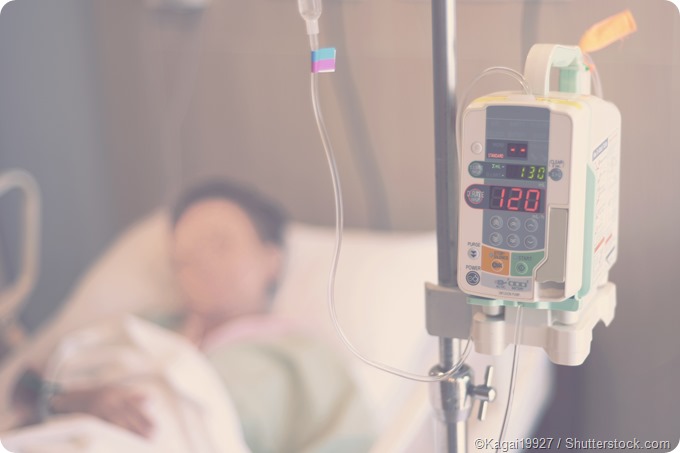Chemotherapy is a common treatment for women who have breast cancer. In most cases, it is used in combination with other techniques such as surgical mastectomy, radiotherapy, and hormonal therapy. However, it may be used as a stand-alone treatment in some cases, such as for advanced stage breast cancer.

Chemotherapy is a cytotoxic treatment that works to destroy quickly dividing cells such as the cancerous cells. It is a systemic treatment that affects the whole body and, as a result, it is associated with significant adverse effects in various areas of the body, particularly those that involve quickly dividing cells (e.g. hair and skin).
Use of chemotherapy for breast cancer
There are several points at which chemotherapy may be used for patients with breast cancer.
Following surgery: Chemotherapy is given following breast surgery that removes areas of the breast that are affected by cancerous growth. In this case, chemotherapy is an adjuvant treatment to destroy any remaining cells that remain after surgery. This is also known as adjuvant chemotherapy.
Before surgery: Chemotherapy is given before surgery to shrink the tumor and reduce the invasiveness of the surgical procedure, which is useful for locally advanced cancer. This is also known as neoadjuvant chemotherapy.
For advanced stage: Chemotherapy is given as the primary treatment for patients with breast cancer that has metastasized because this allows for the simultaneous treatment of cancerous growth in various parts of the body.
Chemotherapeutic agents for breast cancer
There are many different chemotherapeutic agents that may be used in the treatment of breast cancer. In most cases, these agents are used in combination to provide more effective treatment.
The type chemotherapeutic agent or combination used depends on the particular incident and the patient response to treatment. It’s not currently clear if there is one combination that is superior, so various options may be tried and adjusted according to the response of the patient.
Administration of chemotherapy for breast cancer
A dose of chemotherapy is usually administered with intravenous (IV) infusion over several minutes or hours.
It is usually given in cycles with a rest period between each cycle to allow the body to recover from the adverse effects associated with the treatment. The length of each cycle and rest period will depend on the agents that are being used in therapy. In some cases, there will be only one day of administration, followed by a rest period of several weeks, whereas other regimens may have several days of administration or once weekly administration.
The duration of chemotherapy treatment for breast cancer varies widely but is typically between three and six months, depending on the characteristics of cancer and the treatment plan.
Adverse effects of chemotherapy
There are many adverse effects associated with chemotherapy due to the systemic action of the treatment and the broad cytotoxic effect it has on the body. Rapidly dividing cells in the body, such as those in epithelial linings, are most commonly affected.
Immediate adverse effects of chemotherapy for patients with breast cancer may include:
- Alopecia (loss of hair)
- Changes to skin and nails
- Mouth ulcers
- Changes in appetite
- Increased risk of infection
- Bruising or bleeding more easily
- Fatigue
- Nausea and vomiting
- Diarrhea
There are also some delayed effects that may present after the conclusion of chemotherapy. Some patients notice abnormal sensations in the extremities of the body due to neuropathy. Hand-foot syndrome, with symptoms of irritation on the palms of the hands and soles of the feet, may also be reported after some chemotherapy regimens. Cognitive impairment or reduced mental clarity often referred to as chemo brain, is another delayed side effect. Patients may also report feeling more tired for several months or longer after treatment and may have an increased risk of cardiovascular damage, infertility or menstrual changes and leukemia.
References
- http://www.cancer.org/cancer/breastcancer/detailedguide/breast-cancer-treating-chemotherapy
- https://www.cancerresearchuk.org/
- https://www.breastcancercare.org.uk/information-support/facing-breast-cancer/going-through-treatment-breast-cancer/chemotherapy
- http://emedicine.medscape.com/article/2006464-overview#showall
Further Reading
Last Updated: May 25, 2023